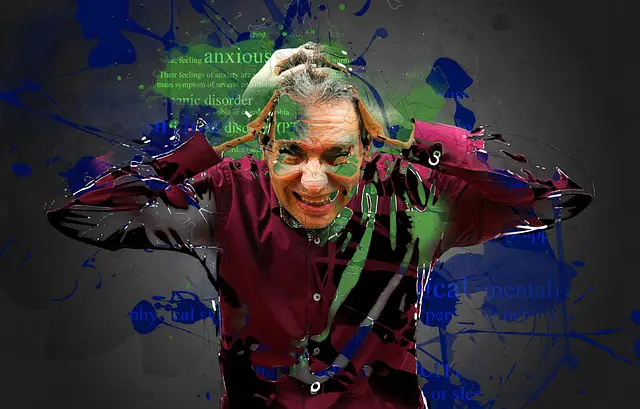Hypochondria and Munchausen are two different conditions that involve an individual’s preoccupation with their health. Hypochondria is characterized by a fear of having a serious illness despite medical reassurance, while Munchausen involves the fabrication or exaggeration of symptoms for attention or sympathy.
What is hypochondria?
(Image by Pete Linforth from Pixabay )

Hypochondria is a condition in which an individual experiences extreme anxiety and fear surrounding their health. People with hypochondria often obsess over minor physical symptoms or sensations, believing that they are indicative of a serious illness. This can lead to frequent doctor visits, medical tests, and unnecessary treatments.
Despite the lack of evidence supporting their concerns, individuals with hypochondria cannot shake the feeling that something is seriously wrong with their body. They may constantly research illnesses online or seek reassurance from healthcare professionals.
This condition can be incredibly disruptive to an individual’s daily life. It can cause them to avoid social situations for fear of becoming ill or even make it difficult for them to leave their house altogether.
While hypochondria is not considered a serious medical condition in itself, it can have significant negative impacts on mental health if left untreated. Fortunately, there are several treatment options available for those struggling with this condition including therapy and medication management.
What is Munchausen?
(Image by Mizianitka from Pixabay )

Munchausen syndrome, also known as factitious disorder imposed on self, is a mental health condition where an individual intentionally creates or exaggerates symptoms of illness or injury. The motive behind this behavior is to gain attention and sympathy from others.
Individuals with Munchausen syndrome may go through extreme lengths to fake illnesses such as injecting themselves with harmful substances or tampering with medical test results. They may even seek out unnecessary medical treatments like surgeries or procedures.
This condition can be difficult to diagnose because those affected are often skilled at deceiving healthcare professionals. However, over time, inconsistencies in their stories may arise which could indicate the possibility of Munchausen syndrome.
It’s important to note that Munchausen syndrome differs from hypochondria in that individuals with hypochondria genuinely believe they have a serious illness despite little evidence while those with Munchausen fabricate symptoms for personal gain.
If left untreated, Munchausen syndrome can lead to serious physical harm due to the invasive and unnecessary treatments sought by the individual. Treatment typically involves therapy aimed at addressing underlying psychological issues that contribute to their behavior.
Causes of hypochondria and Munchausen
The causes of hypochondria and Munchausen syndrome are complex and multifaceted. Both conditions can be classified as somatoform disorders, which means that they involve physical complaints without any underlying medical cause.
Hypochondria is often linked to anxiety disorders, such as generalized anxiety disorder or panic disorder. Those who suffer from hypochondria may have a heightened fear of illness due to past experiences with serious illnesses or a family history of illness.
Munchausen syndrome, on the other hand, involves a desire for attention and sympathy by faking or exaggerating symptoms of an illness. It is considered to be a form of factitious disorder where individuals will go so far as to injure themselves in order to fake an illness.
Some researchers believe that childhood trauma or abuse can contribute to both hypochondriasis and Munchausen syndrome later in life. Additionally, those with personality traits characterized by attention-seeking behaviors or neuroticism may also be at higher risk for developing these conditions.
It’s important to note that the exact causes of these disorders are not fully understood yet. However, early intervention and treatment can help alleviate symptoms and improve quality of life for those affected.
Treatment for hypochondria and munchausen
Treating hypochondria and Munchausen syndrome can be tricky because both conditions involve psychological factors that affect a person’s perception of their health. The primary treatment option for these disorders is psychotherapy, where individuals work with a mental health professional to address the underlying emotional issues that contribute to their symptoms.
Cognitive-behavioral therapy (CBT) is one type of psychotherapy that has been shown to be effective in treating hypochondria and Munchausen syndrome. CBT helps patients identify and change negative thoughts or beliefs they have about their health, thereby reducing anxiety and improving overall well-being.
In addition to therapy, medication may also be prescribed as part of treatment for these conditions. Antidepressants are commonly used in the treatment of both hypochondria and Munchausen syndrome since they can help reduce anxiety levels.
It’s essential to seek treatment from qualified professionals who understand how best to treat these conditions. Self-diagnosis or self-treatment can lead to worsening symptoms or complications.
It’s important for those struggling with either condition not to lose hope. With proper care and attention from healthcare providers equipped with expertise on these complex diagnoses, recovery is possible.
How do you know if you have Munchausen?
Munchausen syndrome is a rare mental illness where individuals fake or produce symptoms of illnesses in themselves to gain attention and sympathy from others. It can be difficult to diagnose because people with Munchausen often go to great lengths to deceive doctors and medical professionals. However, there are some signs that may indicate someone has Munchausen.
One major sign is the frequency of hospitalizations or surgeries without any apparent cause. People with Munchausen may also have extensive knowledge about medical procedures and terminology despite having no relevant medical training or background.
Another red flag is inconsistent symptoms that don’t align with typical patterns for particular illnesses. These symptoms may appear sudden, severe, and/or impossible to explain medically.
People with Munchausen also tend to enjoy the attention they get from being sick and often resist leaving hospitals even when their health improves. They might even become upset if they’re not given enough attention by healthcare providers.
It’s important to remember that only a licensed mental health professional can diagnose someone with Munchausen syndrome. If you think you or someone you know might have it, it’s essential to seek help right away before things worsen.
How do you know if you have hypochondria ?
Hypochondria, also known as illness anxiety disorder, is a mental health condition characterized by excessive worry about having a serious illness. If you find yourself constantly worrying about your health and frequently seeking reassurance from doctors or online resources, you may be experiencing hypochondria.
Individuals with hypochondria often experience physical symptoms that they believe are indicative of a serious medical condition. These symptoms can include headaches, stomach pain, difficulty breathing or heart palpitations. However, despite undergoing numerous medical tests and receiving reassurances from healthcare professionals that there is no underlying issue causing their symptoms, individuals with hypochondria continue to worry excessively.
If these worries significantly impact your ability to function in daily life and cause distress or impairment in social relationships or work performance then it’s best to seek professional help for diagnosis and treatment. The good news is that effective treatments such as cognitive-behavioral therapy (CBT) can help individuals manage their anxiety around health concerns and improve their quality of life.
What is an example of hypochondria and Munchausen?
Hypochondria is a condition where individuals excessively worry about having a serious illness, even when there is no evidence to support it. For example, someone may believe that they have cancer because they experience mild headaches or stomach pains. They will often seek medical attention repeatedly, but doctors are unable to find any underlying problems.
Munchausen syndrome, on the other hand, involves intentionally fabricating or exaggerating symptoms to gain attention and sympathy from others. For instance, an individual with Munchausen might fake seizures or deliberately take medication in order to induce symptoms of an illness.
An extreme form of Munchausen is known as Munchausen by proxy (MBP), where an individual harms another person (often a child) in order to receive attention and praise for their supposed caregiving abilities.
It’s important to note that both hypochondria and Munchausen can be severe conditions that negatively impact one’s quality of life. Treatment options include therapy and counseling aimed at addressing the underlying causes of these disorders.
Featured Image By – Alex Vámos on Unsplash









